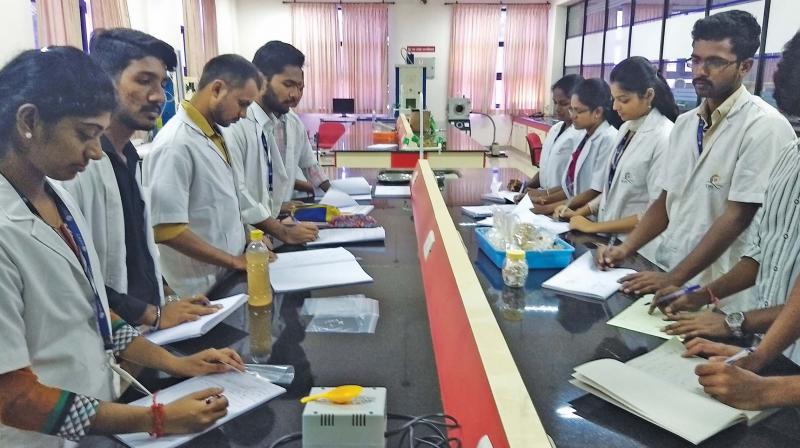Thanjavur: Nutritious millet ice cream can be yummy
IIFPT's jack fruit fibre based cone is an initiative that paves way to make use of what is being discarded as waste.;

Thanjavur: Who will not like ice creams? When it becomes a nutritious and health product, it is more welcome. Indian Institute of Food Processing Technology (IIFPT) at Thanjavur has developed a millet based non-dairy ice cream packed with omega three fatty acids from vegetarian sources. A blend of millets, the ice cream has 59 per cent lesser calories, 29 per cent carbohydrates and 43 per cent lesser in fat than the normal ice creams available in the market.
“The ice-cream has a very good acceptance in sensory preferences among consumers. The product is first of its kind having high degree of nutrients which supplements the consumers fond of ice-creams especially the growing children,” said C.Anandharamakrishnan, Director of IIFPT.
Cones for this ice cream have also been developed by the institute using jack fruit fibre. “At present India's total jack fruits production amounts to 1,705 million tonnes; for each kilo of this fruit, only 300 grams account towards useful intake and the rest remains unutilised. IIFPT's jack fruit fibre based cone is an initiative that paves way to make use of what is being discarded as waste. The texture, flavour, aroma, and taste for the cones were highly acceptable and rich in fibre (12.93 per cent) and (6.9 per cent),” said the director.
The IIFPT has entered into an MoU with Boinpally's Agro Food Products Ltd for supplying non-dairy millet ice cream technology.
Scientists of IIFPT in collaboration with scientists from Central Food Technological Research Institute (CSIR-CFTRI) have developed an artificial small intestine system to test the level of absorption of micronutrients and other bioactive compounds from food. While the artificial system requires just two hours to analyse the intestinal absorption, the methods currently in use are time consuming and not suitable for studying large number of compounds.
The Netherlands Organisation for Applied Scientific Research has developed an artificial system. “Unlike their system, ours simulates the exact physiological conditions and helps to evaluate both bio-accessibility and bioavailability of nanoformulated bioactive compounds” said C. Anandharamakrishnan.
As there are several ethical issues and infrastructure needs that restrict the researchers in doing in vivo studies, “we fabricated the artificial small intestinal system to overcome such hurdles,” he explained.

